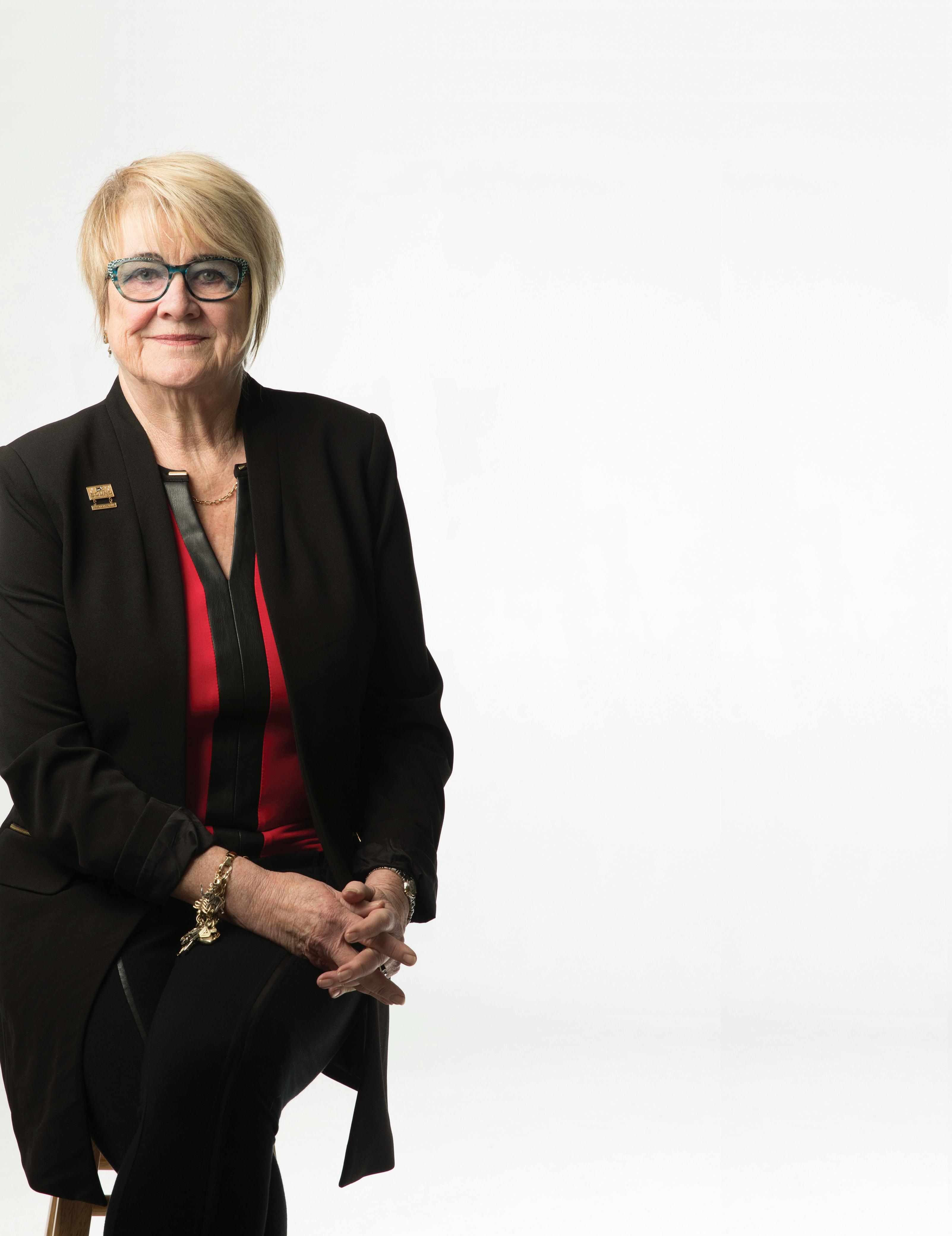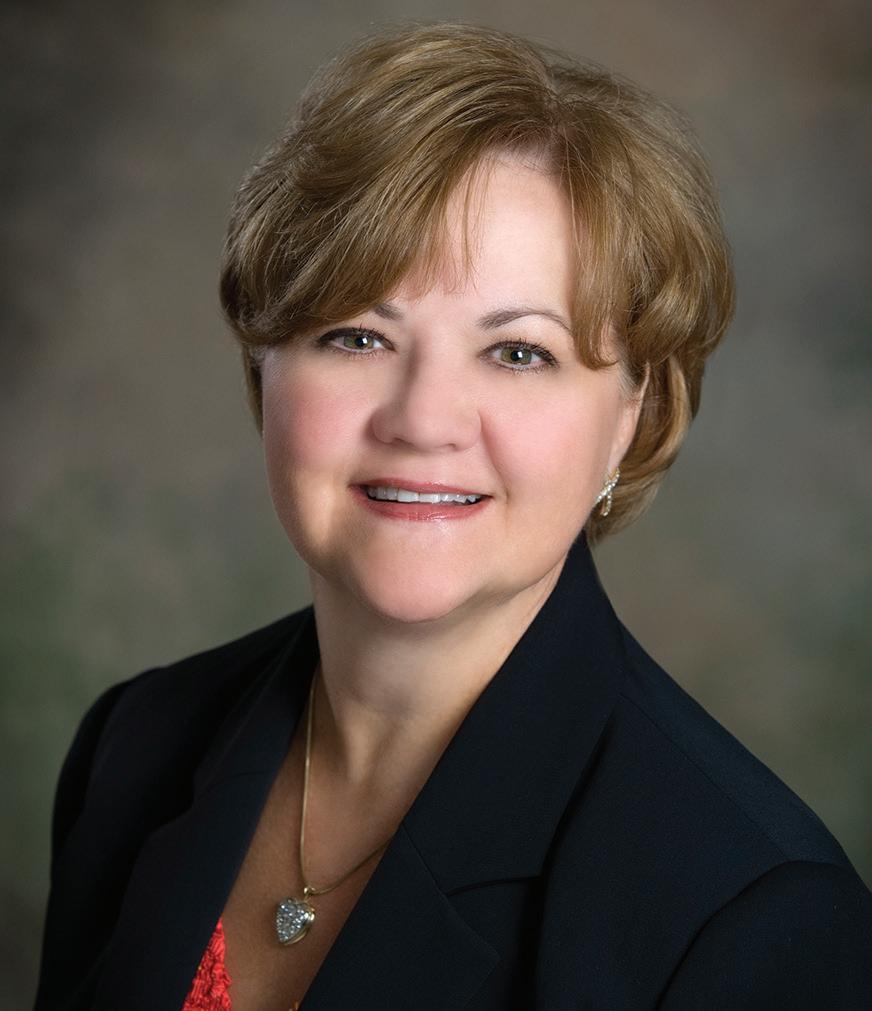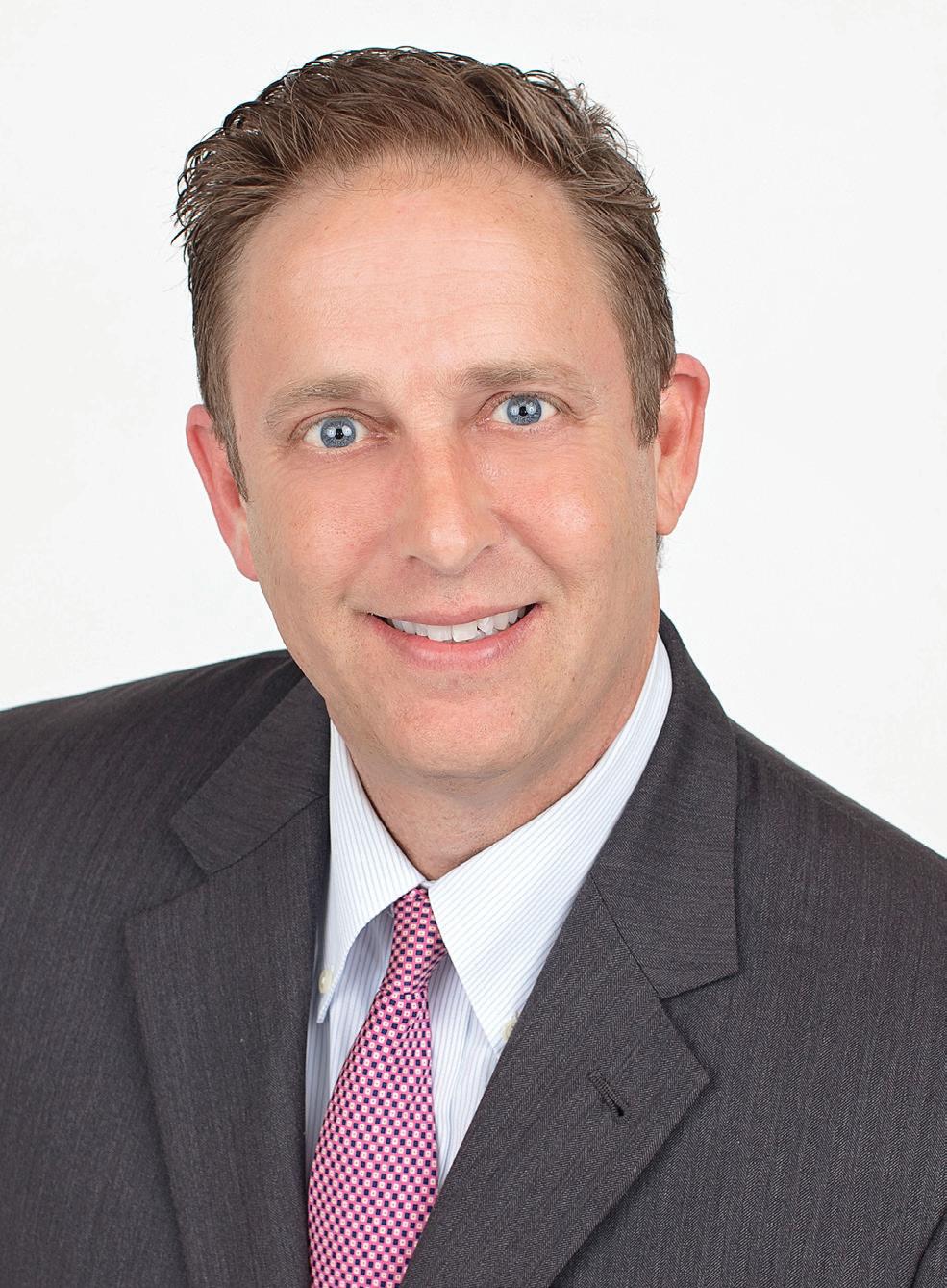
6 minute read
Washington Update
Rob Nichols | President & CEO American Bankers Association
Building Success in Washington Between the end of September and the end of October—at the same time the House was beginning its impeachment inquiry—a remarkable thing happened. Representatives turned their attention to two different, pressing banking issues—cannabis banking and modernization of our anti-money laundering compliance framework—and advanced bipartisan legislation to address them.
Around the same time, federal regulators took action on several other priorities, from implementing sections of S. 2155, which made tailoring of regulation the law of the land and finalizing the new community bank leverage ratio, to raising the appraisal threshold for residential real estate transactions and proposing changes to the FDIC’s national rate cap regulations.
For all the acrimony and dysfunction that seems to be defining our capital these days, Washington sure is producing some smart, commonsense banking policy. How have we managed to see so much progress on banking issues in such a divisive atmosphere? And what does this mean for banking as the 2020 elections approach?
I believe our industry’s success in Washington starts with your hard work at home. While ABA and your state association are working to help you succeed in the future, you are the ones demonstrating the critical role banks play in the economy by making sure your customers and communities have what they need to thrive. And a national survey (see chart on opposite page) that ABA commissioned and released in October found that you are performing this role very well: • Nine in 10 Americans are very satisfied or satisfied with their primary bank • 96 percent rate their bank’s customer service as excellent very good or good • 93 percent rate their access to banking services as excellent or good
Results like these, including a recent Gallup poll that found the highest public opinion of banking in more than a decade, matter because they give policymakers more reason to support you.
We’re also succeeding in Washington by making it clear that banking policy is bipartisan. No matter who holds the gavel in Congress or controls the White House, they need to understand banks and bankers today. So we’ve been working closely with leaders and lawmakers on both sides of the aisle and in both chambers to educate them on issues that are affecting your ability to serve your customers and communities.
Finally, we’re succeeding in Washington because bankers continue to engage in the process. Bankers and state association executives in states that first legalized marijuana, for example, took the lead in educating their peers and lawmakers on the implications of leaving the cannabis industry unbanked. Those include the tax consequences, the public safety risks, and the impact on non-cannabis bank customers.
Other bankers are shaping outcomes by participating in their state’s Washington Visit, analyzing regulatory proposals, conducting critical reviews of our comment letters and responding to grassroots alerts.
All of this puts us in an excellent position as we head into an election year that, yet again, could shift the balance of power. To further bolster the industry’s position in advance of the 2020 elections, ABA is actively scaling our BankPac and our Voter Education initiatives with the intent of supporting Democratic and Republican candidates who understand and appreciate the important role banks of all sizes play in this country. At the same time, we’re building out our new grassroots platform, Secure American Opportunity. That’s where you’ll find information on actionable policy issues and learn what you can do to shape the outcome, whether it’s writing to your lawmakers or commenting on a regulatory proposal.
And while we don’t and won’t participate directly in the presidential race, we stand ready to correct the record if candidates misrepresent our industry or pursue policies that will harm your ability to serve your customers and communities.
39% Banks
17% 5% 5% Healthcare Providers Nonbank Payment Providers (Apple Pay, Venmo, etc.) Government
1% Telecom Companies
1% Major Retailers
Banks Most Trusted by All Age Groups 37% 37%
36% 44%
41 %
SAVE THE DATE! ABA GROUP MEETINGS
Group 1 • February 4 • Searcy
Group 2 • February 20 • Pratt Place Barn, Fayetteville
Group 3 • February 13 • Oaklawn, Hot Springs
While the ABA is located in Little Rock, our members reside throughout the state. To create a focus on banker involvement, increased communication, and grassroots advocacy, the Association divides the state into three geographic groups.
Each group has approximately the same number of banks to encourage more banker participation and to allow members to collaborate, network, and address any concerns more easily.
The groups from around the state meet in a forum to network, make new contacts, hear how other members deal with issues, and learn the importance of “real life stories.”
18-29 30-44 45-54 55-64 65+
Americans are Happy with their Bank...
account holders are “very satisfied” or “satisfied” with their primary bank 9 in 10
rate their bank’s customer service as “excellent,” “very good” or “good” 96 %
rate their access to banking services as “excellent” or “good” 93%
Group 1 Chairman: Brandon Gentry, Wynne Vice Chairman: Kyle Schlenker, Cherry Valley
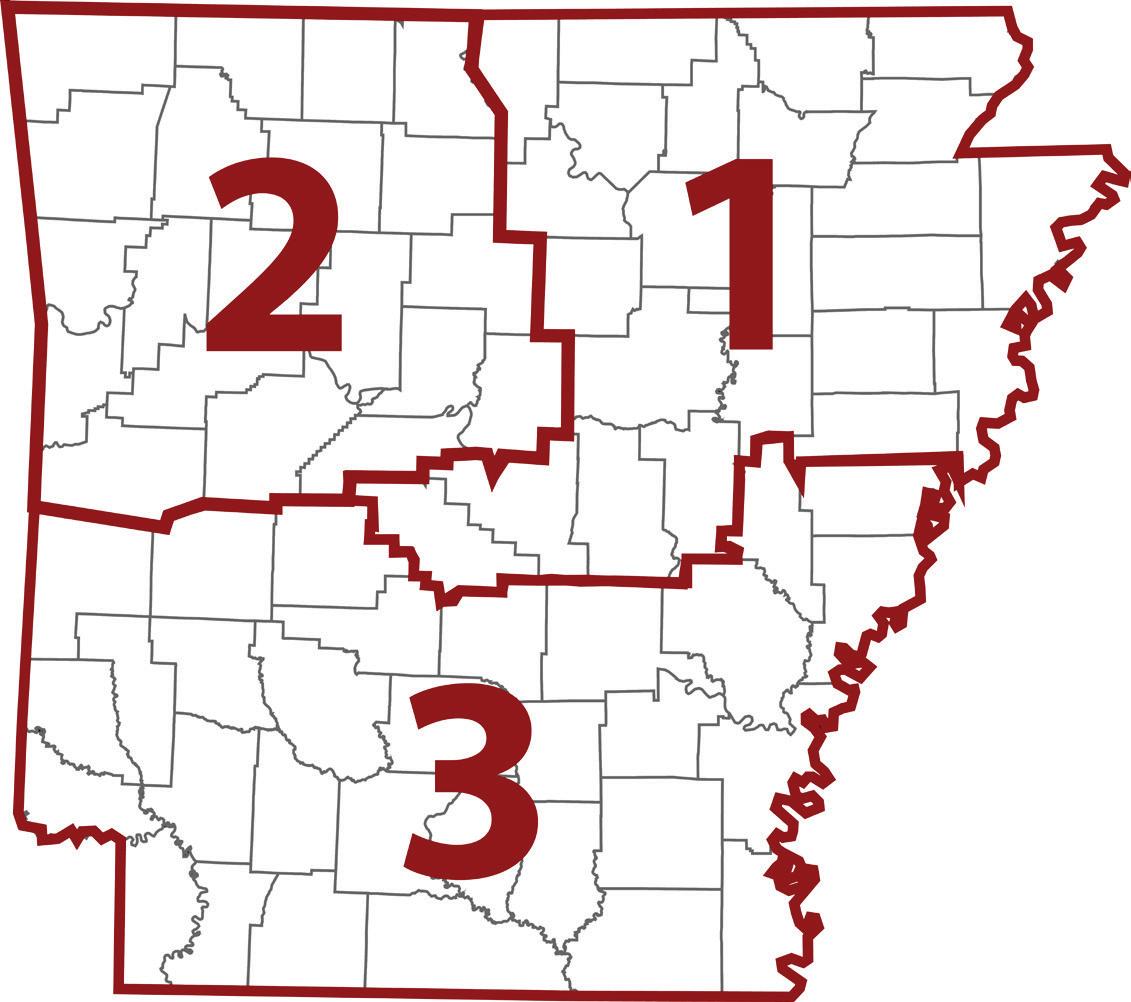
Group 2 Chairman: Mike Donnell, Danville Vice Chairman: Adam Rutledge, Springdale
Arkansas Based Family Owned
CREDIT LIFE & DISABILITY INSURANCE
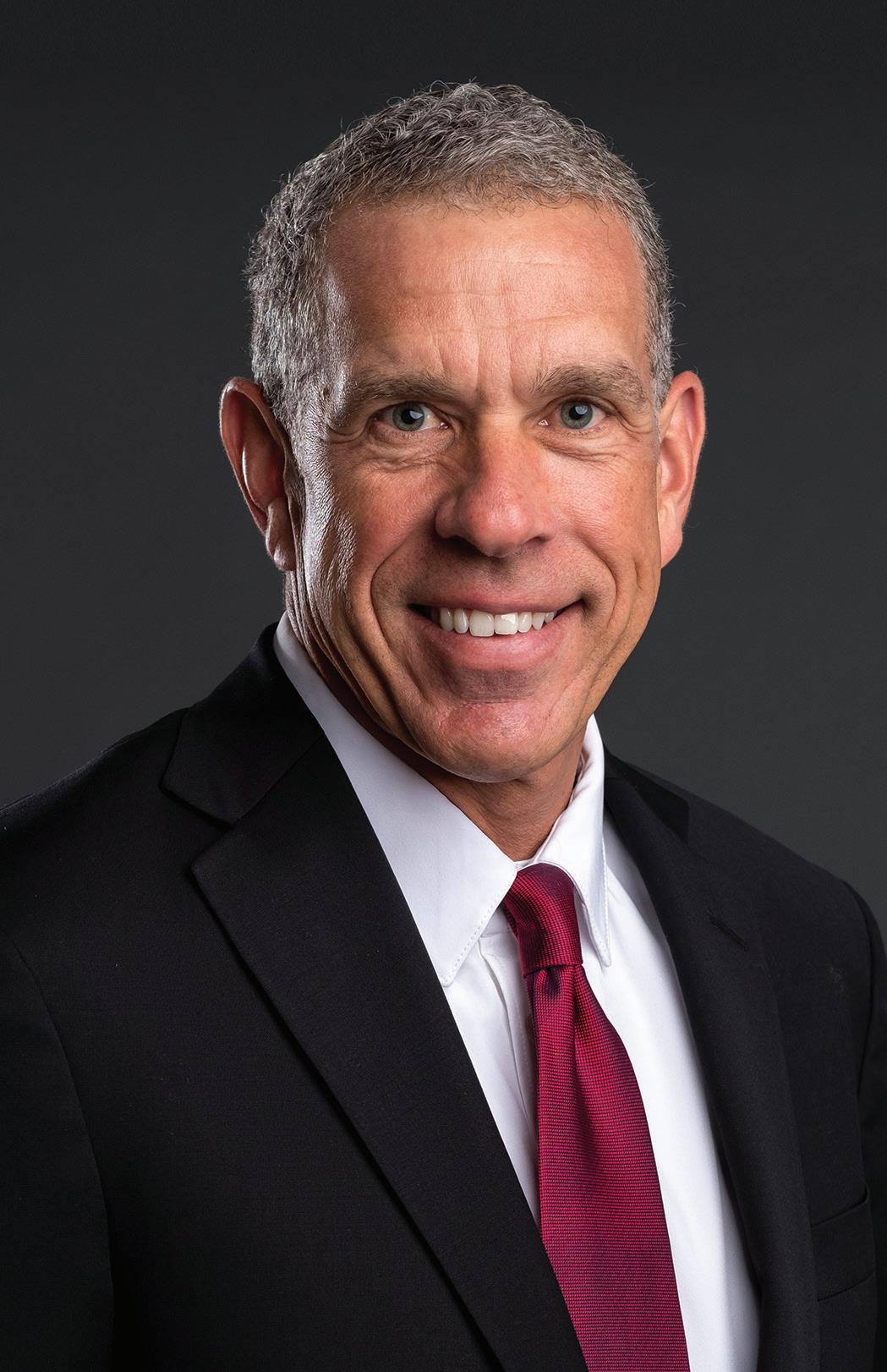
minutes with... Chairman of the Board Generations Bank, Rogers, AR John Harrell 5
Live Life. Leave a Legacy.

How did you get started in banking?
My family has been in banking for generations. I knew halfway through college it was the career I wanted to pursue. Immediately upon graduating from the University of Arkansas, I worked for the Arkansas State Bank Department as an examiner where I met several of my peers in the banking community today.
Over the course of your career, what is the biggest shift you’ve seen in banking?
Without a doubt the impact and effect of technology on how banking products are distributed to our customers and how it effects how we do our daily jobs today compared to when I first started in the business. The thing that hasn’t changed as much for community banks is that relationships are still key in how we do business.
What advice do you have for young bankers starting their careers?
From a community bank standpoint, make sure you work for a bank that listens to how YOU think your generation wants to do business. To be viable today, banks have to listen to younger bankers and make sure we change our approach to doing business with current and future customers and leaders that are now a part of the market. If you are a part of a bank that has this mentality and approach; listen, learn and be patient, opportunities will come your way.
What’s the most helpful banking product on the market today?

No doubt, your phone. All products are designed to be accessed by your phone. Most consumers don’t keep checking account transaction registers any more. Everyone just checks the balance on their phone and rolls with it. Items clear so quickly now, there is little float and soon real time payments will most likely eliminate it.
What trait does the modern banker need to have to be successful?
Donna Spakes donna@flicar.com 501.519.0555 | 800.446.2214 flicar.com
You have to understand and appreciate the importance of technology. Also, being intentional about relationships is key to success both inside the bank and with customers.
What’s your biggest guilty pleasure?


